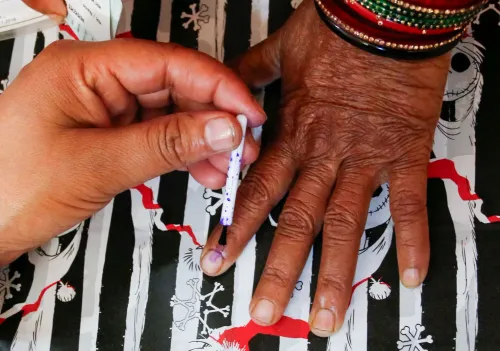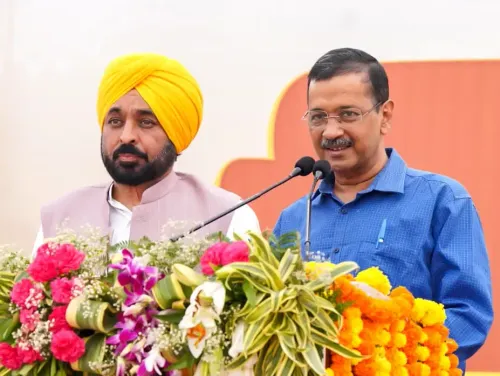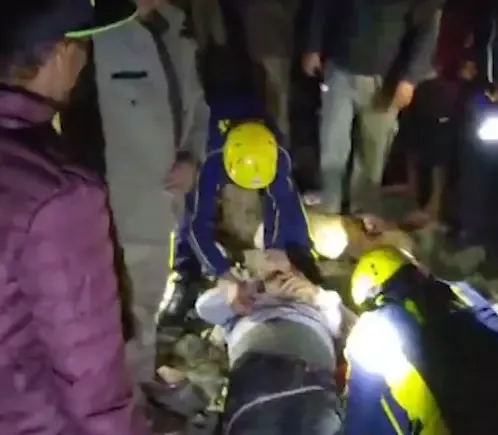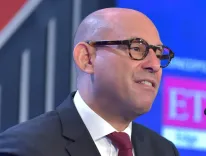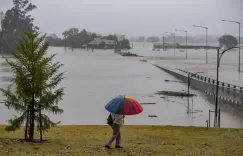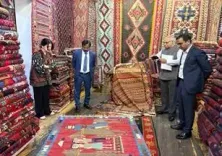Why Did Trump Cut His G7 Summit Visit Short Over the Iran-Israel Crisis?
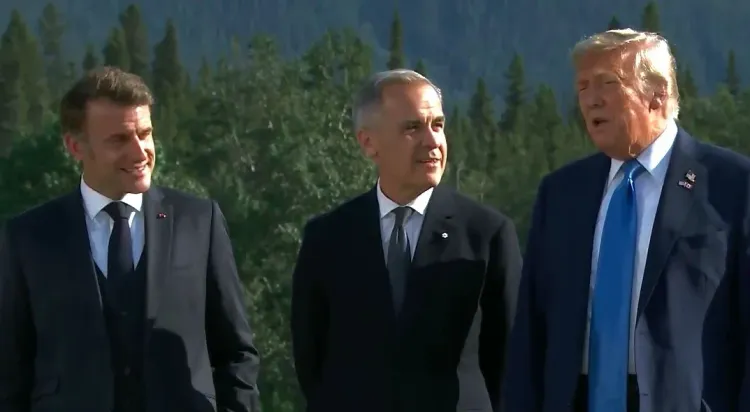
Synopsis
Key Takeaways
- Trump's early departure reflects the urgency of the Iran-Israel crisis.
- The G7 summit is marked by significant geopolitical tensions.
- Trade agreements were discussed, indicating some progress among leaders.
- Concerns about nuclear proliferation remain a top priority for the US.
- The dynamics between global leaders are increasingly complex.
Kananaskis, June 17 (NationPress) - US President Donald Trump abruptly decided to shorten his participation in the G7 summit, heading back home early due to the escalating Iran-Israel crisis. "I need to return early for clear reasons," Trump informed reporters, indicating he would leave after the formal dinner with fellow leaders.
His early departure means he'll miss interactions with Prime Minister Narendra Modi, who arrived in Calgary Monday evening for the summit of industrialized democracies alongside select emerging economies on Tuesday.
The summit's backdrop is marked by an intensifying missile conflict between Israel and Iran, which escalated starting Friday. When the gathering commenced at this scenic resort famed for its ski slopes, Canada's Prime Minister Mark Carney declared that the leaders were at "one of those turning points in history".
He noted that the world is now "more divided and dangerous" compared to previous G7 summits, presenting this moment as a "hinge" when the globe looks to this assembly for solutions.
Already, indications of a divide between the US and other nations emerged, as White House officials announced Trump would not endorse a joint statement urging both nations to de-escalate.
"Once I depart, we’re going to take action," Trump ominously stated about his early exit.
On Truth Social, he warned Iranians: "Everyone should immediately evacuate Tehran!"
"To put it plainly, IRAN MUST NOT POSSESS A NUCLEAR WEAPON. I have reiterated this multiple times," he emphasized.
According to an administration official, NBC News reported that Trump had instructed the National Security Council to be prepared in the White House Situation Room upon his return, where strategic decisions are crafted and executed.
His post regarding the evacuation of Tehran left uncertainties about direct US intervention in the conflict or whether intelligence suggested a significant assault from Israel.
Israel's offensive actions against Iran undermined Trump's diplomatic efforts to resolve the nuclear weapons issue with Tehran.
In a contradictory statement, Trump had also mentioned, "I believe Iran is essentially at the negotiation table; they want to strike a deal".
President Emmanuel Macron of France stated that Trump mentioned ongoing discussions, adding that if the US could broker a ceasefire, it would be highly beneficial.
Earlier in the day, the summit proceedings seemed to unfold smoothly, without the expected tensions stemming from Trump's tariff battles against the attending nations and threats regarding Canada.
Other notable figures at the summit included Prime Ministers Keir Starmer of Britain, Giorgia Meloni of Italy, Shigeru Ishiba of Japan, Chancellor Friedrich Merz of Germany, and European Commission President Ursula von der Leyen, among others.
Apart from Modi, other invitees included President Volodymyr Zelensky of Ukraine, Claudia Sheinbaum of Mexico, Luiz Inacio Lula da Silva of Brazil, and Prime Minister Anthony Albanese of Australia, who will join the summit on Tuesday.
Reflecting on Monday's events, Trump remarked, "I believe we accomplished a great deal."
He and Britain's Prime Minister Keir Starmer formalized a trade agreement, signaling peace in their tariff conflict.
Trump engaged in a lengthy discussion with Carney, who expressed optimism about a potential trade deal. The leaders reportedly agreed to seek negotiations within the next 30 days.
Another point of contention was Russia's expulsion from what was formerly the G8. Trump asserted that if Russia hadn't been ousted, the war in Ukraine might not have occurred, stating, "That was a mistake because I think you wouldn't have a war right now."
At the 2018 G7 summit in Canada, Trump had also broached the topic of Russia's expulsion, leading to a heated disagreement with then-German Chancellor Angela Merkel.
Similarly, Trump had curtailed his participation at that summit to attend a meeting with North Korea's leader Kim Jong Un, which ultimately failed as North Korea rejected a deal to terminate its nuclear ambitions in exchange for sanction relief—a situation reminiscent of current negotiations with Iran.

